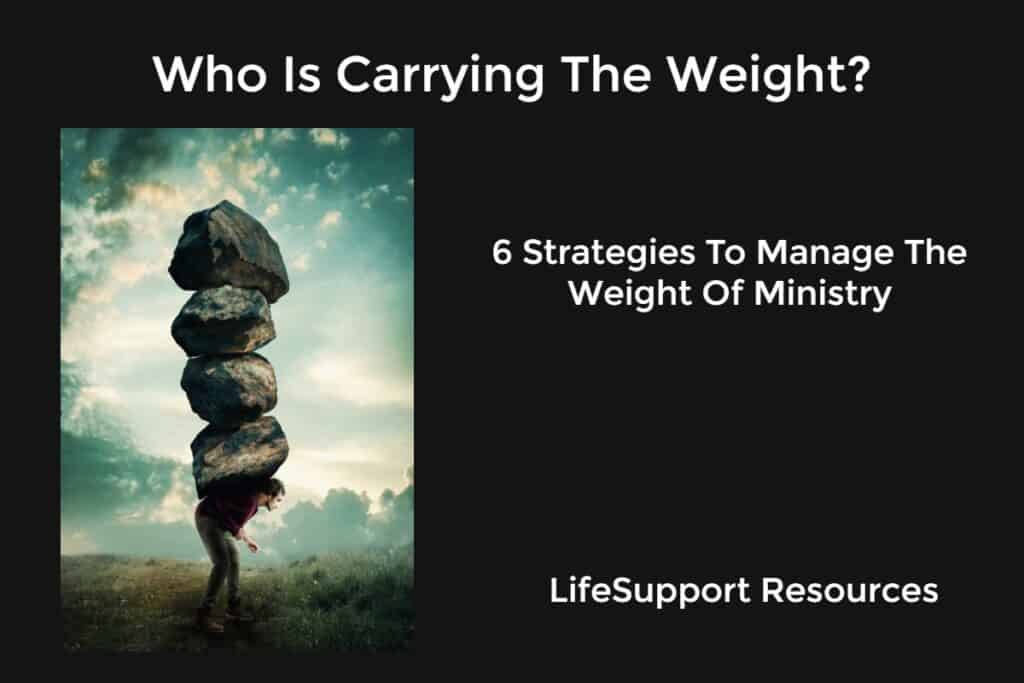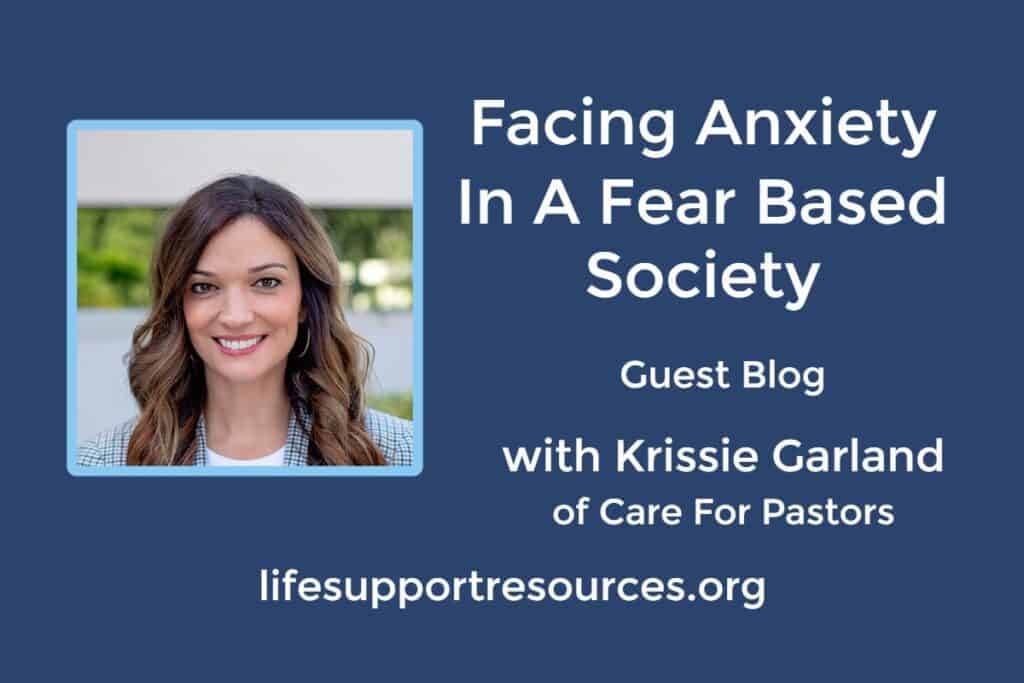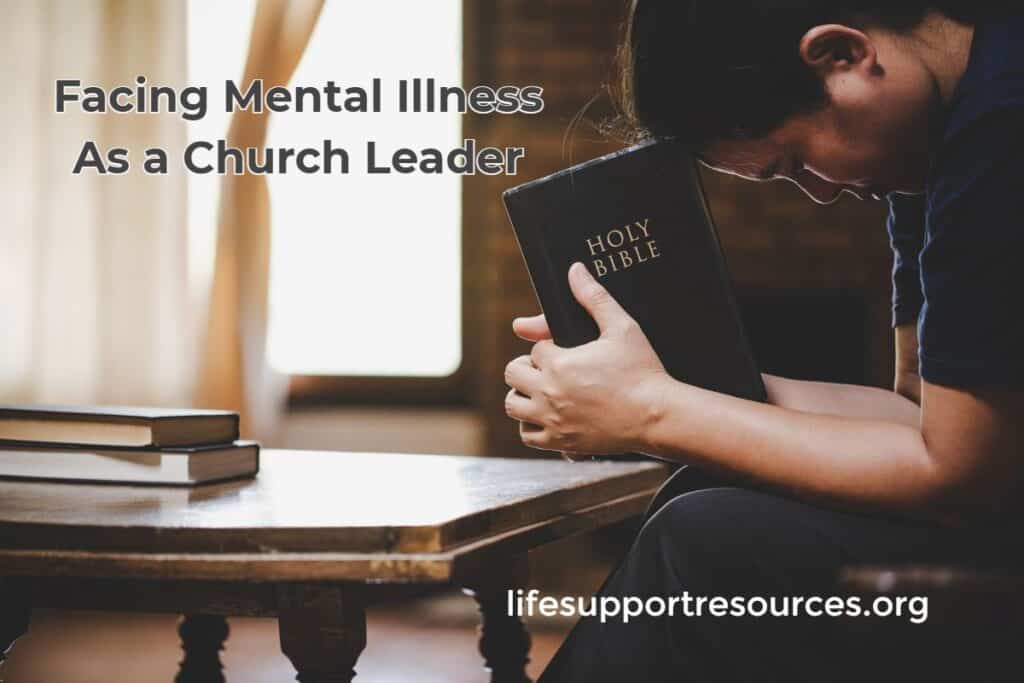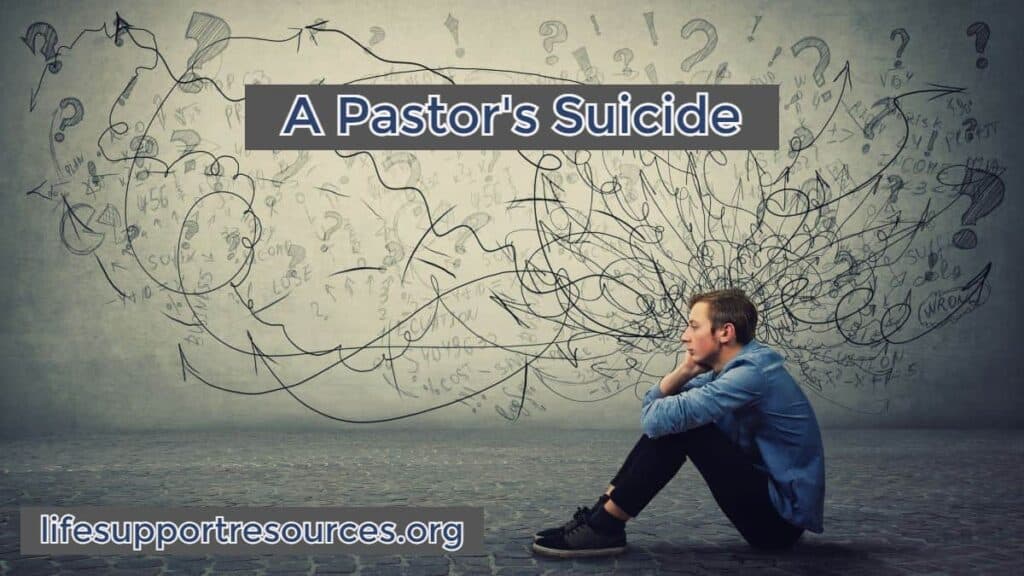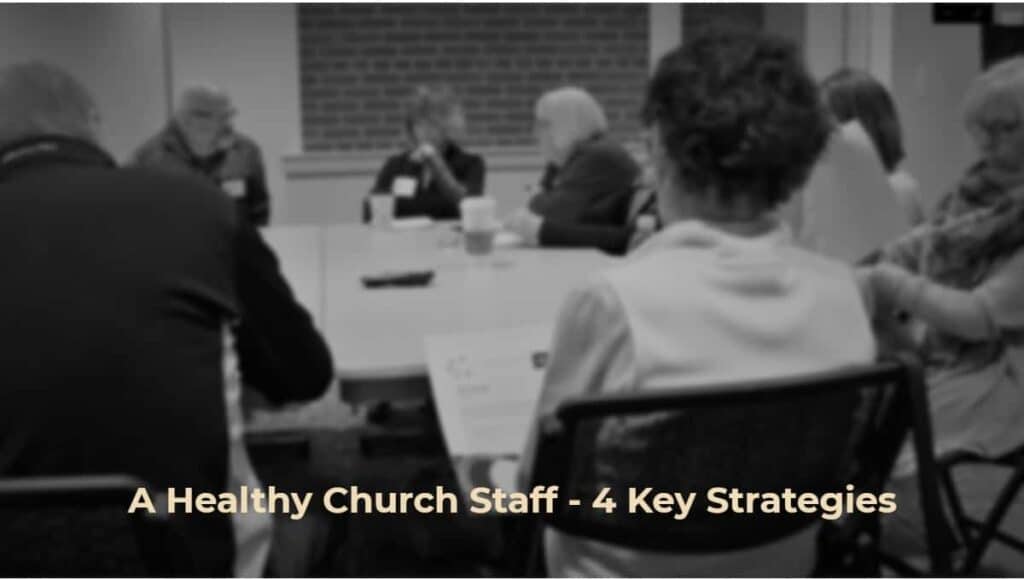Who Is Carrying The Weight?
Six Strategies To Manage the Weight Of Ministry
The popular TV show Survivor features tribes of people competing to survive under challenging circumstances. Each episode includes some kind of challenge where tribes face off in a physical contest. One such contest provides an analogy for the pressures and toll that affects clergy and churches today.
The Challenge
In this game, each tribe member carries a backpack containing an amount of weight equal to a percentage of their body weight. This ensures that everyone gets an equal chance to succeed and that the load is fairly distributed throughout the tribe. Once weighted, tribe members start walking under the weight of their packs. The rules for this challenge state that once the tribe starts moving, individual members can drop out. But, when each person makes the decision they can’t go on anymore, they must hand their weighted pack off to one of the other tribe members who continue to walk. The start of this challenge is fairly boring as everyone is pretty comfortable with their reasonable load. Eventually, the elements start to effect the contestants as sun, heat, rain, poor footing, or insects take their toll. One by one, tribe members tire and begin to drop out.
How It Ends
As individuals leave the contest, the tribe needs to choose who will carry the load for those who can no longer go on. In nearly every group there is one person who others see as the strongest. Tribes do their best to keep one or two of these folks around as long as possible so they have someone to handle the big challenges. As more and more individuals stop walking with their weight, these strong one or two tribe members end up carrying the lions share of weight for their group. The challenge concludes with one final tribe member bearing the tribe’s entire load. The contest is over when, finally the strongest member reaches a breaking point when they either collapse under the weight, or simply give up and quit moving.
Surviving The Ministry Load
If you work in ministry, the parallels between this Survivor challenge and your work are obvious. Here are six strategies you can apply to the collective weight of your ministry tribe.
- Divide The Load Wisely – Identify the weight that everyone is designed to carry. Everyone who works in ministry is well aware of their gifts and strengths. If you are in a staff leadership position, take the time to reflect on which specific responsibilities feel heaviest to your team members. Is there any way to relieve a bit of the burden or to temporarily redistribute specific tasks? Many staff conflict issues arise out of a misunderstanding of everyone’s role and who is carrying the most weight. In any role there are invisible weights that other team members aren’t aware of. Make sure everyone knows how hard others are working to carry their share of the weight.
- Make The Weight Seem Lighter – Therefore encourage one another and build one another up, just as you are doing. 1 Thessalonians 5:11(ESV) If you lead staff members, encourage your team at every opportunity, but deploy your church Body too. Your church is filled with people who have been given the gift of encouragement. Know who these people are and ask them to help lift up your staff. Consider building an exhortation team for your staff.
- Observe Your Team Wisely – Most leaders believe that they are skilled at judging others and select who they see as strong team members. Great leaders recognize that strength ebbs and flows. Just because someone has always been strong in the past doesn’t mean they are strong today. Even the strongest people are affected by the challenges of life. Often the stronger a team member, the less likely they are to share their struggles. They may be emotionally exhausted and weak at home and in the car on the way to work, but as soon as they walk into the office they turn on the “strong” switch because that’s what they’ve always been and what they believe is expected of them. Great leaders don’t rely on appearance to judge strength, they take the time and create processes that allow them to evaluate how team members are doing on an ongoing basis.
- Add New Tribe Members – How can you engage others to pick up part of the load? We all know that the work load increases at times during seasons of the ministry year or during times of growth. Take the time to prioritize and make strategic decisions about what weight you absolutely have to carry and what could be handed off to others. Are there people like former staff members, high level volunteers, seminary students, or others who can pick up the weight of a few specific tasks for a short term assignment?
- Maybe You Don’t Have to Do Everything – We all suffer from Shiny Object Syndrome (SOS) at times. We read about a new mission, outreach strategy, Sunday school curriculum, leadership book, ministry conference, technical gizmo, etc. and we want to put it to use in our organization. Most of us have run across someone who flits from one new thing to another like a hummingbird. They have a lot of frantic movement and energy, but they’re hard to keep track of, and they sometime aren’t too productive. One strategy that helps me avoid SOS is to limit change related decisions to four specific times per year. Each quarter, I schedule time to sit down and strategize about new projects, initiatives, even to make decisions about what books I’m going to read. These decisions aren’t hard and fast, but they help me avoid being distracted by the newest shiny object in my world.
- Sometimes You Just Need to Stop and Trust – Recognize that no person or organization is capable of succeeding without God. If you find that you have become the last person in the challenge and that the weight of your tribe is too much to bear, hand it all off to God and stop walking. Trust that he will keep moving for you all.

